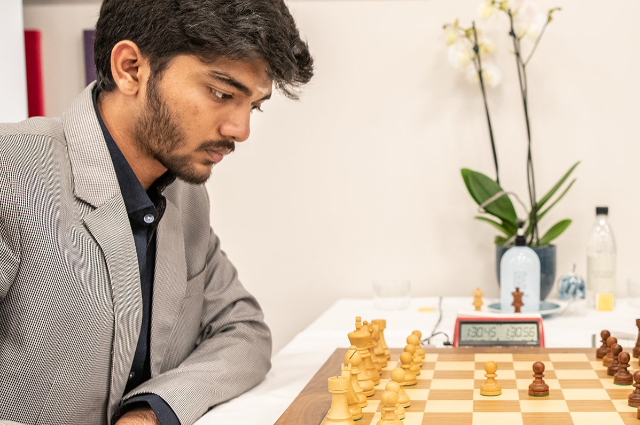Something incredible happened in Stavanger, Norway, on the first day of June 2025. It was the kind of moment that makes people stop whatever they’re doing and pay attention — the kind that reminds you why sports, even quiet ones like chess, can make your heart race. D Gukesh, the 18-year-old world champion from India, defeated Magnus Carlsen in a classical game of chess. That sentence alone might not sound earth-shaking until you understand what it really means.
This wasn’t just a game. It was a meeting of two worlds: one that has dominated the chess scene for nearly two decades, and one that’s just beginning to shape the future. For years, Carlsen has been the face of chess — brilliant, unbeatable, and almost myth-like in his calm control over the board. Gukesh, on the other hand, is the quiet storm. The boy genius turned world champion who lets his pieces do the talking. In this game, they finally met on even ground, and Gukesh came out on top.
From the start, you could tell it wasn’t going to be an ordinary match. Carlsen had the white pieces and opened with a Queen’s Pawn. Gukesh responded with confidence, showing deep preparation. They played cautiously at first, feeling each other out, like dancers circling before the first step. It wasn’t flashy. There were no early fireworks. But the tension? You could cut it with a knife.
The middle game was tight. Symmetrical pawns, logical piece placement — it looked balanced on the surface. But beneath that, there was this undercurrent of psychological pressure. Gukesh wasn’t backing down. He wasn’t rushing. He wasn’t trying to impress. He was just playing good, clean chess. And Carlsen was doing what he always does — waiting for that one moment, that one slip, that one weakness he could twist into a win.
But here’s where it flipped. The mistake didn’t come from Gukesh. It came from Carlsen.
As the clock ticked down and they entered the endgame, Carlsen miscalculated. It was subtle — one pawn push that seemed natural, but turned out to be a crack in the foundation. Gukesh spotted it instantly. He played the winning sequence with ice in his veins. A queen infiltration. A cold endgame squeeze. And suddenly, the unbeatable Magnus Carlsen was out of time, out of space, and out of luck.
When Carlsen resigned, it didn’t feel like a normal resignation. For a brief second, he let the frustration show. He hit the table with his fist — hard enough to knock a few pieces over. The internet exploded. Cameras caught the moment. Commentators paused mid-sentence. It was raw, real, and honestly — it made the moment feel even bigger.
Because that wasn’t just any loss. That was Magnus Carlsen losing, in Norway, in a classical game, to the teenage world champion. He knew exactly what it meant. Everyone did.
To Carlsen’s credit, he recovered fast. He stood up, shook Gukesh’s hand, and gave him a quick pat on the back. It wasn’t the warmest handshake in chess history, but it was honest. A show of respect. No excuses. Just acknowledgment that the better player had won that day.
The reactions poured in. Indian fans were over the moon. Twitter and Instagram were flooded with edits of Gukesh wearing crowns, fire emojis, and chessboards on fire. Even business leaders and celebrities chimed in with congratulations. People called it a proud day for India. And it was.
But more than that, it was a proud day for the game itself.
Because this was not just about who won or lost. This was about what it meant. Gukesh isn’t just a young champion. He represents a new wave of players who aren’t afraid of reputations. They study hard, play clean, and stay calm. They don’t care about legacy — they care about the board in front of them.
Gukesh, especially, is special. He’s not loud or flashy. He’s not always in the spotlight. He just shows up, plays his heart out, and wins. When he became the world champion in 2024, people wondered if it was a one-time thing, a sudden rise that might fade. But beating Carlsen like this — not by luck, not by fluke, but by outplaying him — silenced all doubt.
And then there’s Carlsen. The man who carried chess into the modern age. The one who made people watch chess on YouTube, who played blindfolded games with ease, who redefined how complete a chess player could be. Watching him lose hurts — even if you’re rooting for the new guy. Because Carlsen losing feels like something rare and precious being chipped. But at the same time, it makes him more human. The frustration, the reaction, the visible disappointment — it reminded everyone that he still cares deeply. He doesn’t just play to show up. He plays to win. That passion? That’s why people love him.
This wasn’t the end of anything. Not for Carlsen. Not for Gukesh. In fact, it felt like the start of something new. A rivalry, maybe. Or maybe a shift in power. Or maybe just a sign that chess isn’t done surprising us.
The Norway Chess tournament is still going, but whatever happens next, this game is already legendary. Years from now, people will still talk about it — not because of the table slam, but because of what it symbolized. A changing of the guard. A glimpse into the future. And the quiet, undeniable strength of a young man who showed up in a room full of greatness and proved he belonged.
When Gukesh walked out of that room, he didn’t shout or celebrate. He just smiled that small, calm smile of his. The kind of smile that says, “I’ve been working for this. I’ve earned this.” And he had. Every move. Every minute. Every moment. He didn’t just win a game of chess that day.
He made history.

